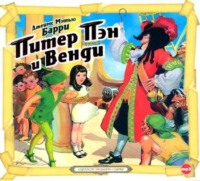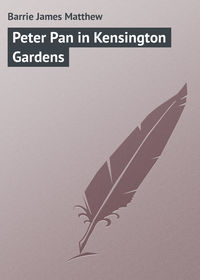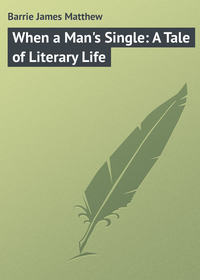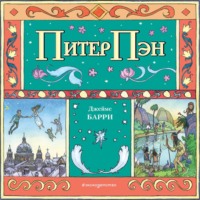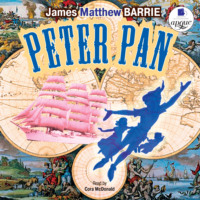 полная версия
полная версияA Widow's Tale, and Other Stories
Pate said little for the rest of the day to the inquisitive and anxious women of his house; but he pondered long as he strode about the fields in the afternoon, and later in the night, when the labourers had gone to their houses, to the scattered clump of lowly cottages that sheltered beyond the farm-buildings, and all the members of the family within the house, bound to be early astir in the morning, had gone to rest. There had been talk enough and consultation. But though the Mistress and Margaret had not been able to refrain from carrying on the arguments of last night between themselves, there was a consciousness even in their minds that it was he alone who had to decide. And they had withdrawn to their beds, a little reluctant, yet constrained by necessity and a sense of duty, to leave him to himself. It was a relief to him when they were gone, and yet it troubled him to feel himself left under the flickering light of the cruse in the stillness of the house to face this problem which was his, and not another's. He had been more or less of an easy mind during all his youth, disturbed from time to time by his gentle blood and his possibilities, which from shadows, that they had been at first, had grown into present and real things, as old Sir Walter's family had failed one by one, and it had become more and more apparent that it was he, and only he, who was the heir. The lass who was the last of the house of Kellie had not seemed of much importance to Pate's eyes, – not more than she had been to old Sir Walter, who was her brother, though he might almost have been her grandfather, and to whom she was an accident, troublesome, and sometimes exasperating to think of, and therefore pushed aside and not considered at all. Neither did Pate think of her. He had been troubled at times by the consciousness that he had not been bred so well as he was born – that he had about him that something of the fields and the plough which made him different from the young gallants, the flash of whose ready rapiers from the scabbard was, as Neil had said, with wise and wounding justice, unlike the deliberate drawing of the sword which perhaps had rusted a little in its sheath. And the thought of this, and such incidents as had occurred yesterday, when the train of gentlemen who, though they resented his intrusion, and supported Pate in his rights, still crowded about the Master of Oliphant, and left his kinsman to such consolation as the humbler yeomen could bestow, – had irritated and vexed him. It seemed to Pate a humiliation, not only that they should withdraw, but that he himself should care.
But all these thoughts had gone like last year's snow, in a new dilemma very differently felt. That he should not after all be the next in succession, the just heir; that there should be some one between him and Kellie, – to have discovered this, had he ever anticipated or dreamt of such a possibility, would have been in all his previous thoughts a sort of deathblow. But somehow that dread discovery did not hurt him at all. No; nor that he should be recognised as the first vassal, the loyal servant of this intruder, who shut him out of his lawful inheritance. He had tried for a moment to be angry, even to be wounded, but he had not succeeded. It had given him a shock; but the shock had been such as the discovery of a new inheritance, a something better even than Kellie, might have given. Who was it, this true heir, for whom he was called upon to give up the claim which had been dear as his life? who commanded him imperiously as the first vassal, the nearest kinsman, servant, and officer. It would have been incredible to him that he should have accepted such a position; that he should have met the call, not with defiance, rage, denial, but with a consent and acquiescence which astonished himself; which filled him with generous emotion, with a kind of pleasure, with a soft humorous sense of something beyond reason in it, foolish, noble, more exquisite than any emotion he had ever felt before. To secure the home of his fathers, the hope of his life, the right most dear to him – for Jean! not for himself. It brought the moisture into his eyes, a dew of pain, yet warm with every sweetness. He turned round on the heavy wooden stool, beside the big table, on which he sat, and fixed his eyes on the words scrabbled in stone upon the chimney, and still more misshapen and irregular in that medium through which he looked at them. "À tovt povrvoir." What meaning had been in these words! He had seen himself the master of his father's house, the head of his name, the providence of his race. Not an Oliphant in St Monance, not a fisher on the coast, that would not be the better for him, that would not rejoice to think that the auld blood had been revived in the new master, and every ancient tradition of kindness from lord to vassal made true. It was no ignoble hope that had been in the young man's heart. No one had ever called old Sir Walter an ill laird; but he had grown old, indifferent, rapt in the shadows of his old age, no longer capable of thought or care for those around him. Whereas Pate was young, full of sympathy, full of vigour, knowing every man and caring for every house. To cry "an Oliphant!" in a street brawl, or take the crown of the causeway from any passer-by, had not been in his thoughts; but to be the defence of his own folk, the champion of Fife, one of the supporters of the common weal!
Pate rose up with a start, pricked by his thoughts, and went to the fireplace – leaning his head upon the rude carving, and gazing down at the smouldering red on the hearth. Would she be that? A bit of a lass, not much more than a child, without knowledge; also a creature of caprice, moved not, like himself, by long-held, long-pondered resolution, but by every wind that blew, by sudden impulses, perhaps unwise, by the council of the moment, born to-day and gone to-morrow. He pressed his brow upon the stone till the carving was printed upon it, as it had been before on his heart. Who could tell what mood would sway her, what strength she would have, what instruction would commend itself to her – what (and perhaps this was the great question of all) – what husband she would marry? But that question, which suddenly roused the blood in every vein, so that Pate felt a sudden flush go over him from head to foot, – that question had to be crushed at once, having nothing to do with the matter. That was not his affair. No such solutions from fairyland were to be brought into the consideration of a man's duty. The women might dwell upon them. They might so, if they would, set injustice right, and contradict the laws of nature at their pleasure; but such considerations were not for him. The question was not one of fancy or of chance, but of what he, a strong man and a steadfast, taking gravely into consideration every side of the subject, was to do: and this was what he had to settle now.
CHAPTER VII
"My friend Pate," said Sir John Low, "I cannot think that you have so little sense – a young man of havins, as I have ever kent you – as to oppose my Lord Oliphant in his lawfu' rights. The estate has been gifted to him fully and fairly by him that had the power. And you have but the drap's blood. We are not denying your blood-right. You are the next of kin; but if Sir Walter thought it the best thing to put back the auld lands under the hand of the undoubted head of the house – "
"It is just that that will have to be tried," said Pate.
"Man," cried Sir John, "what are you but a distant kinsman after all? And my lord also is a kinsman – maybe farder off in degree, but assured in line as the fountainhead to the stream."
"Mess John," said Pate, "we will leave counting the degrees. There is one that needs no counting, being the child of the same father, and more near in kin than I am, as I frankly allow." Here Pate lifted his bonnet from his head with a certain solemnity. "That she is a maid and not a man is naught; for the maid has succeeded to the father as long as there has been law in Scotland. And I have even heard say – "
"Mistress Jean!" cried the curate, elevating his eyebrows; and he smote Pate on the back a jovial blow, all unlike his lean form and the gleam in his eyes. "Ha, my bonnie lad! you are none so simple for a country clown. You would strengthen one ill claim with another, and win the knight's spurs by the help of the distaff! Whiles it is not a bad plan."
That Pate's cheek should have flamed at this filled him with a sense of humiliation; but it was anger and not shame that brought the red, which flushed fiercely over his brow and lent a red light to his hazel eyes.
"The lady's claim is firm as Carnbee Law," he said. "I yield to it, with no liking, nor even surety of well-doing. She may carry the auld castle that is the home of my fathers into a stranger name – the whilk would be the grief of my life. I yield to her, because I cannot in justice withstand. She claims me as her defender, which doubtless I am, being the first man – in Fife – of my name."
Sir John, who had been staring at him open-mouthed, here burst into a laugh. "And you tell me that's your reason!" he cried, in a derisive tone.
"You, or any man," said Pate, calmly. "And I would do the same," he added with a smile, turning upon the half-priest, who followed stealthily, as far as he dared, the habits of the old faith, sure of indulgence in the unsettled state of affairs – "I would do the same if I were one of your lambs, that tell you all in your ear ahint the kirk-door."
"It would be well for you, my lad, if you did the same," said the curate, reddening in his turn; "and ye should hear from me that when you lippen to a young lass you are a fool for your pains."
"What!" said Pate, "is that the counsel you give, Sir John? To leave the orphan lass undefended, and bow the head to the silken lord? That is not the lear that has been learned to me."
"Silence, yeoman!" cried the angry curate. "Are you one to teach your betters, let alone your priest?"
"Ay," said Pate, "or any honest man; and I acknowledge no priest but only him that teaches the Word – which never yet bade to pass over the weak, even when it is to your own hurt, as this is to mine."
"Here's one coming that will give you grand reason for every fule-deed you like to do," cried Sir John – "ay, and tie you up safe and fast to the lass that ye think has such a grand tocher. But bide awhile, bide awhile, Pate the pious. Succouring orphans is a fine thing when your own rights are not so clear as ye thought; but when you find a useless wife on your hands, and all the cows to milk, and the byres to clean – "
"You have an ill tongue, if you were ten times a priest!" cried Pate, with a clouded brow.
But the controversy was stopped by Master Melville, who came up hastily, quickening his usually sober steps at the sound of Pate's voice raised above its usual tone, and the laughing, scornful attitude of Sir John.
"Your look is not peaceful, Peter," he said, "nor your eye content."
"Did you expect to find me content, Maister Melville," said Pate, "with my rights taken up by others, and myself scorned before my neighbours? I would then be a man not like other men."
"The Lord of Over-Kellie," said Sir John, "was, by my faith, near upon charging me with a cartel of war to that other nobleman the Lord Oliphant; but that I am a man of peace and carry no gage."
"You might moderate your jesting, Brother Low," said Melville, "and so show yourself a man of peace. This is not the time, Peter, to bandy words, with whosoever it may be. You have your duty to do for your kindred and your name."
"It is what I am ready to do at all times," cried Pate, hastily, eager to find in the minister's face the counsel already established in his own.
"We will say good morrow, first," said Melville, "to this reverend brother. It is an evil thing to be overly much concerned with the affairs of this world, Maister Low. Here are you and me, both led away by these heathenish disputes, that should have been in our quiet studies pondering our sermons, and the Lord's Day coming on – "
"I am no man for long sermons," said Sir John, "nor am I liked the less on that account, so far as I can see."
"Well, sermons are my trade," said Melville, passing his brother-clergyman with a bow. He put his arm in Pate's, and led the young man with him, gently forcing his steps. "All he means," said the minister, holding Pate's arm tight and leading him on, "is to make you talk and give forth your foam and nonsense, the whilk he will turn into solid mischief. I hope I am no uncharitable," he added, devoutly; "but come you, Patie, my man, and talk out your soul: you are safer with me than with him."
"No, minister," said Pate, "I have no need for blethering, as you seem to think: my mind is steady and made up. The young lady is more wronged than I am. She is her father's just heir. She claims me as her first servant, and I allow the claim. I am the man nearest to her. I am fechting, and I will fecht, to the death, for her right and not mine."
"Pate! lad!" said the minister; his voice faltered, and even his step for the moment. Then he cried, "No wonder he did not understand!"
But Pate neither comprehended nor desired to comprehend the meaning of this reply. He was entirely preoccupied with his own thoughts. "That is my solemn determination," he said. "I have had my fancies; but then I kent nothing of her, nor of her just rights. I will get them for her if I can, minister: it is my first duty, as the next of the name."
"She is but a lassie," said the minister, "and a wild one; no training, no mother, grown up just like a blade o' grass on the lee. There is no telling what the like of her may do. She will take your very heart out of your life, and never ken what a gift it is. She may not even thank you. She may think it's only her right and your duty."
"And what is it else?" said Pate. "You are all the professor I ever had: if my lear is poor it is your blame. I think I have heard from your very mouth that if a man does not stand for his ain, specially for them of his own house – "
"Oh, laddie, do not tackle me out of my own mouth!" cried the minister, peevishly; "many a foolish thing I've said. Meantime, you must mind that when the Apostle said yon, he was thinking nought of a man's house, according to your meaning of the word. Little recked that holy man of the Oliphants or any Scots name, with their pride and their clanships. What he meant was the man's wife and his bairns – and no a distant cousin twenty times removed."
"No more than three times, minister," said Pate; "make me not out more loon than laird. And as she's her father's daughter, and he so old a man, she is of the elder generation, my father's second cousin, and no more than second cousin once removed to me. And what could be nearer my own house than that? Nay, the holy man, as you say – I wot not how to call him – would e'en have been of my mind."
"Paul he was, and not always favourable to Peter," said Melville, shaking his head, yet with a tremulous smile on his face. "Pate, I will ask you but one thing. Is it for the hope of this maiden's love that you take up her forlorn cause?"
"Maister Melville," said Pate, "I ken not if I love her; but reason none have I to think that she has ever wared a thought on me. There is clear in my mind the danger, and mostly the certainty, that she will mate with some stranger and carry the auld house into another name, – the whilk would be bitter to me – more bitter than words can say."
"If it is so," said the minister, "then the Lord bless you, my lad, Pate. Laird or no laird, you are a true man, and that's better than rank or high degree."
"You mind, minister," said Pate, with a smile, "Aw toutt pourvoïre– you were the first to learn me what its meaning was."
"I was ever a fool," said Melville, "and ever will be! It is not that kind of lesson that makes a man win lairdship and land."
"But it is maybe the best consolation when he has to bide without them," Peter said.
They had come in their walk within sight of Kellie Castle, which stood square and strong, rising with its turrets to the sky from amid the peaceful fields, as it still stands undismayed by all the progress of the centuries. It is a little grim and grey in the darkness of its stone walls nowadays, all Scotland having been seized since then with that false reserve which discredits colour; but in these days, no doubt, much of the rough mass, especially in its out-buildings, must have shone in white or yellow, the old tints, weather-stained and glorious, which the country then loved. Pate looked towards that home of his fathers, lifting once more the bonnet from his brow. It had been a kind of idol to him throughout his youth, his every hope had centred in it; it had been his ambition, the desire of his heart – not an ignoble one. He looked upon it now with a smile full of sorrow and disappointment, and a thought, had he known it, higher than any other hope that had ever before centred upon Kellie. If it were won for her, then would it be well lost.
"Fare thee weel, auld Kellie," he said with a half laugh to hide that tremor; "thou wilt never be to me or mine; and I have glowered at thee, and longed for thee all my life long: which maybe you will say, minister, is just a judgment on me for a covetous thought."
"You will never hear such a word from me, Pate, my man," said the minister. "I have more opinion, if I dare to say it, of your good Lord and mine."
He, too, lifted his hat in reverence as he spoke, and after a moment both turned away.
"After all," said Master Melville, "this is not the subject on which I sought you in haste, my lad, Pate. I hear that yonder wild lassie, hot with her race and her youth, is for defending the auld Castle by force of arms. She will call out every Oliphant in the Kingdom of Fife, you the captain: she will fill the stores with provender, and furbish up the auld armour, and hold the place against lord and loon. It's over the whole countryside already, and the lads at St Monance all alow. There needs but a spark to fall, and there will be a blaze to light up Fife. Pate, do you think what that would be? Two whole parishes put to the horn. The men, that are the breadwinners, in prison or hounded out of the land. The women helpless with their bairns; the boats all useless on the shore, the plough in the furrow. Ever have I learned you, Pate Oliphant, that a man's first thought should be for them about him that are in want of good guiding and help to do well. You cannot stand against the law. You cannot stand against the chief of your name, that has riches and troopers at his command (though well I wot he is a wastrel, and his son after him). Mistress Jean, she is but a bairn. The right and the wrong have gone to her head, and of the consequences she takes no thought. Vain to, speak till her of ruined houses and men slain or banished. She just thinks of victory and the three silver crescents waving over Kellie, and the tyrant driven away. As if she was a queen fighting for her crown – and, waes me! we have well known in this generation what comes of that."
Pate had walked on by the minister's side, silent, his head bowed, listening. He looked up hastily, interrupting —
"A princess; but with more right than the law, and more innocence than that gowan-flower. There is no similitude."
"Nor am I making any comparisons, Pate Oliphant," said the minister with a smile; "but what is all that," he cried, as a sound as of shouting and tumult came to them over the cliffs on the breeze which is always fresh (or salt as the case may be) blowing off the Firth over the Fife braes.
They had walked far in their talk, and were now near the old village of St Monance, with its old kirk dating from the days of King David, that "sore sanct for the crown." The sound evidently came from that quarter, and both the men quickened their steps accordingly. The village consisted then, as now, of a straggling line of red and moss-grown cottages, parallel – if any parallel could be to a coast cut up in zigzags by the line of rocks – with the margin of the sea. It was entirely a fisher village, the boats drawn up high in the rocky openings of the beach, almost on a level with the houses, and nets spread everywhere, drying, or mending, or being baited at every point. But in the centre of the "toun," where the space between the houses and the sea was a little wider, was a little crowd of fishermen, their dark figures lighted up by a touch of brighter colour in a kirtle or petticoat, and the white specks of the mutches which every decent woman wore. They were all circling round a gayer figure in their midst, Mistress Jean to wit, uplifted on her pony, with her hair flowing under her riding-cap, the highest light in the picture, as her delicate face was, among all the ruddy, weather-beaten, glowing countenances round. Jean had, it was evident, been making something like an oration to her assembled vassals, and her eyes shining, her hair waving, her arm in the air, had kindled the fishers to enthusiasm. "We are Oliphants all," she was saying as the minister and Pate came up, "every one kin, far off or near, and hey for the silver crescents and bonnie Kellie Castle, that never owned master since the days of Bruce but – " she stopped with the pause of natural eloquence as her kinsman pushed into the crowd: then waving her whip, cried with all the force of her young voice, and a daring which brought the blood to her cheek, "Pate Oliphant's line, and mine."
Never was a touch more effective. As he pushed forward, scarcely hearing what she said, there rose a general shout, "Pate Oliphant and the bonny Leddy; Leddy Jean and the kind house o' Kellie! We're for them and nae land-loupers. The Bruce's blood and the auld name!"
"Mistress Jean," said Pate, "what do you here? This is no court of law, to judge between you and him that, right or wrong, is no land-louper, but the head of our name."
"Land-louper yourself, Pate Oliphant!" cried Jean, in high indignation. "Let go my bridle! If you will not tell the lads, what is left to me but to do it? and you, if you will not speak, be silent, sir! for though I do you all honour, and name you with myself, you are but my vassal like the rest. And that you ken!"
Pate's bonnet was in his hand, and he bowed low; but he held her bridle without flinching, though pony and rider both rebelled. "It is not safe for a spirity creature like this," he said, "the roaring of those loons so near her lug. Silence, lads! The lady understands, without more of your rowting, that you're all leal, and her friends."
The men had slunk a step backward in dismay at what seemed to them a family quarrel. They brightened again, and answered, "Ay, that are we!" "To our last drap o' blood!" "And yours too, Maister Pate!" – with a subdued clamour, daunted by his look, for he was not a man to trifle with, as they knew.
"My bonny bairn," Mr Melville was saying at the other side, "if you will curb your pony to an auld man's pace, I would fain go with you. There's danger baith for man and beast here."
"And what do I care for danger?" cried Jean; "it's just half the pleasure. Bid Pate Oliphant let go my bridle. Do you think, me that am 'most in arms for my rights, I will be guided by him?" She touched the excited pony with her whip, which made a bound, scattering the fisher-folk. But not Pate, who, setting his teeth, and digging his heels into the earth, held her with a grasp of iron. Jean had the whip raised again, with the intention, it seemed, this time, of striking him, when the minister called out to her —
"Slip down, lassie! the little beast is wild wud; she'll dash you against the rocks; she'll have your brains out: slip down, slip down, and you'll take little harm."
"Leddy, ye canna haud her a minute longer," cried a fisher – one rushing on each side to pluck her from her saddle. But the girl blazed over them, her hair waving in their faces, her blue eyes darting fire.
"Away!" she cried. "Away! Hold off! She may master you and me, but she'll not master Pate!"
CHAPTER VIII
There ensued after this a very dark time in the life of Peter Oliphant of Over-Kellie. When Jean found that not she, any more than the pony, could master Pate, she withdrew altogether her favour and friendship from him. Shut up within the old house, which Lord Oliphant after that one demonstration of taking possession left unvisited, she passed the lingering spring and summer, often seen about the country roads on her pony, but keeping up a seclusion within, quite uncongenial to her temper, and which even Margaret from Over-Kellie was not allowed to break. The suit at law, brought before the courts by her kinsman and next friend on her behalf as a minor, – that Sir Walter's will might be set aside as barred by her right of succession, and also as procured by undue influence, when in his age and weakness he was no longer able fully to exercise his faculties, – excited for a moment her hottest wrath. She burst forth upon Maister Melville, who gave her the information, with blazing artillery of looks and words, of which he avowed that could the first have slain him he would now have been a lost man. But the mild divine, being full of experience and observation, believed he saw behind all this fury a certain exultation. "How daured he, after denying me, and contradicting me, and leaving me here to eat my heart, while he went off to his plough, the dastard, no to answer his lady's call! And I doubt not he's laying his furrows and sowing his grain as if there was no such person as Jean Oliphant shut up in Kellie," the girl cried, glowing with rage and curiosity and eagerness. "You can tell him that it's he that is the land-louper, and no credit to his gentle blood, to turn his back on the auld house and upon me."


